DATES: MAY 2 – 3, 2024
TIME: 9:00am – 5:00pm PST
WHERE: University of Northern British Columbia – Prince George, BC
INTRODUCTION
Join other counsellors, therapists and mental health professionals for two days of professional development, education, and training to support children and youth that have experienced trauma. The primary goal of this conference is for participants to walk away with knowledge and skills they can implement immediately into their practice and tend to the trauma experienced by the children and youth accessing them for support.
We are thankful to host you on the unceded ancestral lands of the Lheidli T’enneh, on whose lands we live, work and play.
***SOLD OUT!!***
LOCATION STATEMENT OF THE UNIVERSITY OF BRITISH COLUMBIA
We are the University of Northern British Columbia. We came to life at the insistence of the residents of Northern British Columbia. They wanted to make it possible for their children to receive a university education without having to go elsewhere. We are a regional university and have campuses in Quesnel, Terrace and Fort St. John as well as enjoying a federation agreement with the Wilp Wilxo’oskwhl (House of Wisdom) Nisga’a Institute situated on Gitwinksihlkw Village Lands within Nisg̱a’a Treaty territory. We are also strongly Indigenous in our focus. We share a strong partnership with the Lheidli T’enneh Nation on whose unceded territory we exist here in Prince George, and with other First Nations and Métis communities throughout the North.
Without reservation we strongly support the United Nations Declaration on the Rights of Indigenous Peoples and the findings of the Truth and Reconciliation Commission and its Calls to Action. We take to heart the findings of the National Inquiry into Missing and Murdered Indigenous Women and Girls as well as “In Plain Sight” the report on racism and discrimination in British Columbia Health Care. We are addressing the evil of racism directly as well as all aspects of Equity, Diversity and Inclusion. We want to be a racism-free institution that embraces all cultures and makes everyone feel welcome and accepted. We are not perfect and are struggling to implement our desires. However, we will not rest until these goals are achieved.
Location statement taken from the UNBC website.

We are grateful for the support of the University of Northern British Columbia as a partner for the 2023 Conference, Tending to Trauma.
KEYNOTES
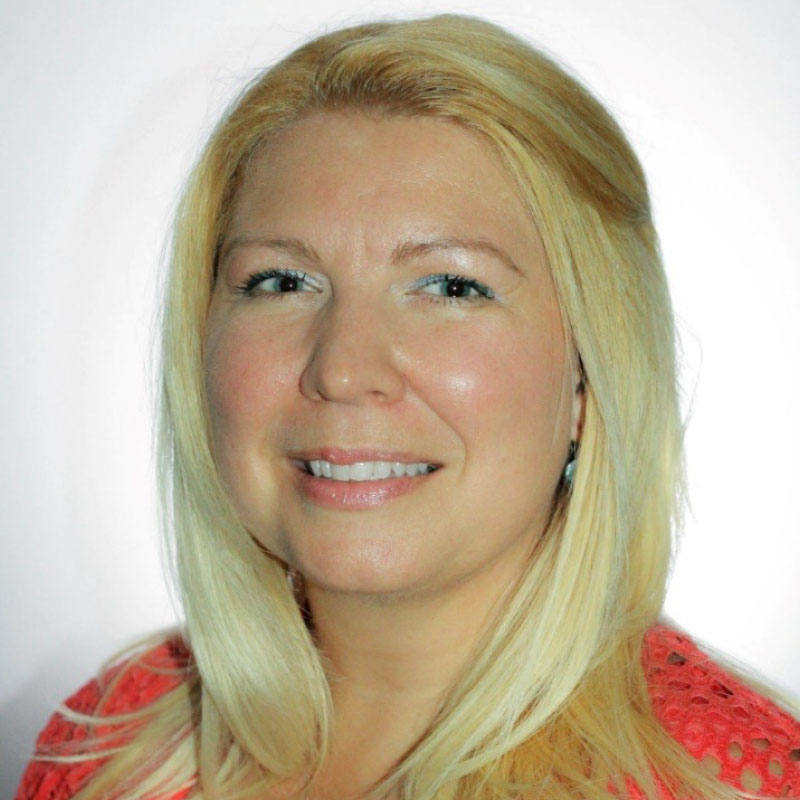
Lori Gill
Keynote: Understanding the Neurobiology of Trauma and Attachment
Workshop: Integrative Strategies for Engaging Children and Healing Trauma
Lori Gill, Founder and Clinical Director at the Attachment and Trauma Treatment Centre for Healing (ATTCH), Attachment and Trauma Treatment Centre for Healing (ATTCH) Niagara, and Lori Gill Psychotherapy. Lori is a Registered Psychotherapist, Certified Trauma Specialist (CTS), Trainer, and Consultant Supervisor for STARR Commonwealth (formerly the National Institute for Trauma and Loss in Children), a member of the Complex Trauma Treatment Affiliates Program (CTTA), and a member of the American Psychological Association (APA) Trauma Division. Lori is a former psychology professor with 18+ years of experience working with children, youth, and adults in various professional settings. Her diverse background has provided her a wealth of skills in the areas of trauma, attachment, mental health, compassion fatigue prevention, addictions, eating disorders, wellness and education. Lori combines her professional experience with her love for learning resulting in trainings which are a rich culmination of research, evidence-based and best-practice treatment models, and techniques to bring you leading edge, practical, and integrative trainings.
Lori is the creator of the Integrative Trauma and Attachment Treatment Model (ITATM)® ITATM is an embodied model for reprocessing and reappraisal of the central details of trauma memories using somatic release, bilateral stimulation, visualization, resourcing and reframing in an integrative and structured manner to regulate the body, brain and mind simultaneously. Lori is an engaging and sought after presenter and consultant offering trainings Internationally to help agencies and professionals become trauma-informed and learn how to deliver trauma-specific treatment.
Lori is honoured to have received an Award of Excellence in 2014 for her contributions to the trauma field and to have been named as an expert witness in the areas of trauma, attachment, and reconciliation therapy.
Lori provides consultation and supervision services as well as wellness therapy for helping professionals to prevent compassion fatigue.
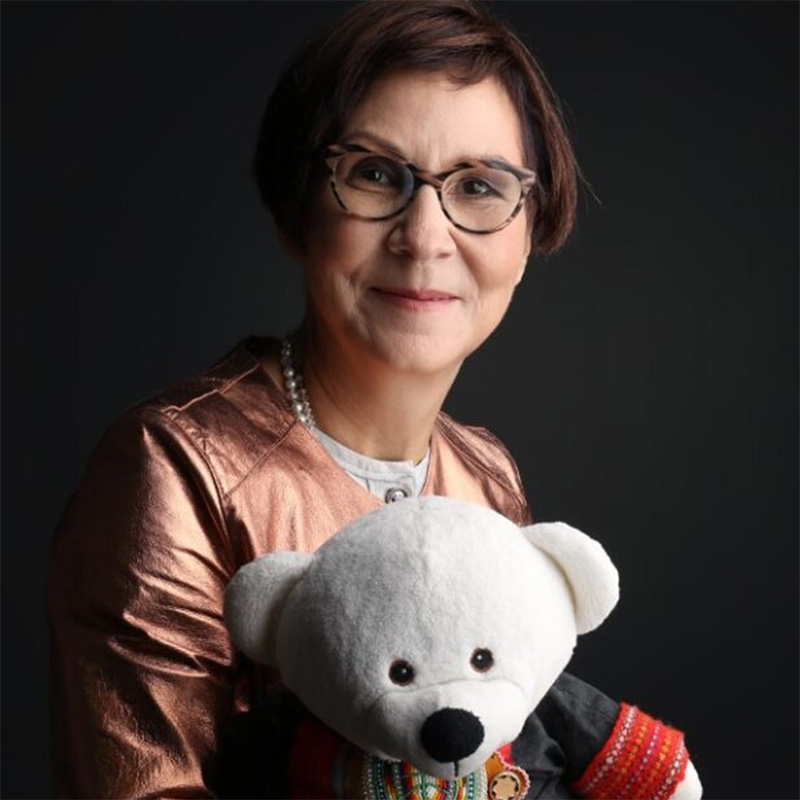
Cindy Blackstock, PhD
Keynote: Spirit Bear’s Guide to Reconciliation
A member of the Gitxsan First Nation, Cindy is honoured to serve as the Executive Director of the First Nations Child and Family Caring Society and a professor at McGill University’s School of Social Work. She has over 30 years of experience working in child welfare and Indigenous children’s rights and has published on topics relating to reconciliation, Indigenous theory, First Nations child welfare and human rights. A recipient of the SSHRC Gold Medal, Cindy was honoured to work with First Nations colleagues on a successful human rights challenge to Canada’s inequitable provision of child and family services and failure to implement Jordan’s Principle. This hard-fought litigation has resulted in hundreds of thousands of services being provided to First Nations children, youth, and families.
Cindy is frequently sighted in the company of the Caring Society’s reconciliation Ambearrister, Spirit Bear, engaging children in meaningful actions to implement the TRC Calls to Action.
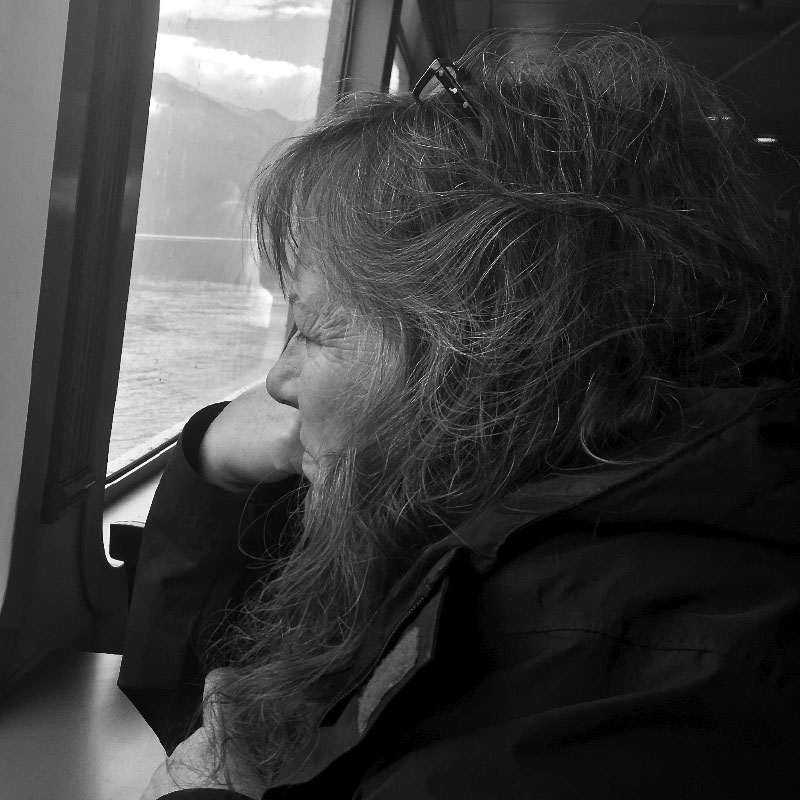
Linda O’Neil
Keynote: Sustaining Hope in Practice: Understanding Secondary Trauma and What Helps
Workshop: Validating Strength in Adversity: Therapeutic Relational Repair Strategies as Foundation Trauma Work
Linda is a long-time northerner from the far northwest corner of BC who practiced in that area for many years. She holds a BA in Child and Youth Care, an MEd in Counselling Psychology, and a PhD in Educational Psychology from the University of Victoria and is a certified counsellor and trauma specialist. Linda and her colleague Dr. John Sherry run the Counselling Program within the Department of Psychology. Working together, Linda and John guide the Community Counselling Centre (CCC) in Prince George, the main practicum site for the program, and Linda volunteers at the centre as a trauma counsellor, clinical supervisor, and Clinical Coordinator. On behalf of the CCC, Linda provides trauma-informed training to schools, health authorities, youth justice, parole, and probation throughout BC and Yukon and workshops on secondary trauma to local agencies and agencies in the regions as a way of supporting helping practitioners and improving the situation of children, youth and adults who have experienced adversity.
Linda’s research focuses on: trauma-informed practice and trauma-specific interventions, counsellors and other helping practitioners working in isolated settings; secondary trauma experienced by practitioners; complex trauma(Developmental Trauma Disorder); historical and intergenerational trauma; and counselling and research ethics related to northern practice. Linda is a qualitative researcher and principal investigator on a three-year Northern Communities SSHRC grant, Informal and Formal Mental Health Support in the North, a SSHRC Insight Development Grant on What Counts: Indigenous views of measurement and program evaluation, and co-PI on a two-year SSHRC Partnership Development SSHRC, Classroom Support for Children who have Experienced Complex Trauma and Attachment Disruption.
DAY 1: MAY 2, 2024
9:00AM
Welcome
Shannon Croy, Executive Director, Intersect Youth & Family Services
9:15AM
Appreciation of Lheidli T’enneh Territory – Lheidli T’enneh Chief Dolleen Logan
9:30AM
KEYNOTE: Understanding the Neurobiology of Trauma and Attachment
Presented by:
Lori Gill (see Keynote for Bio)
10:45AM
Wellness Break
11:00AM
WORKSHOPS (Choice of 1):
Beyond Risk: Centering Joy, Resistance, and Resurgence in our work with children and youth who have experienced sexual abuse
This workshop will centre the processes and practices of listening and leaning into the everyday truth-telling of children and youth who have experienced sexualized violence, and sexual abuse and will attend to the shape and quality of the shifting sites where this happens. Practice examples and approaches will include individual work, group work and all of the spaces children and youth move through from the intimate and familial, to the community and online. In all of these spaces children and youth are engaged in intimate acts of intersectional and decolonizing acts of resistance, both through theorizing about violence and the forms that it takes, but through the telling in certain spaces and relationships, that facilitate and allow for relational witnessing and accountability.
Presented by:
Dr. Natalie Clark
Read Bio
Natalie’s work is informed and mobilized through her interconnected identities including Settler ancestry (Irish, Welch, English) and her intersecting kinship relationships to Indigenous communities (Secwepemc, Métis), in particular as a parent, auntie and grandparent of Secwepemc children and youth, and part of the Secwepemc community; an academic; activist and sexual abuse counsellor. In addition to her role as a Professor at Thompson Rivers University in the School of Social Work, Natalie continues to practice as a clinical supervisor, educator and counsellor specializing in sexualized violence, sexual abuse and trauma as well as a girls group facilitator for Indigenous girls (including non-binary, gender-diverse youth).
Centering Dignity, Resistance & Agency with Children & Youth Who Have Experienced Violence
In this experiential workshop participants will explore tools, activities and conversations to engage and support young people who have experienced violence in their homes. In small group discussions workshop attendees will be invited to reflect on their own biases around victim blaming, mothering and children’s behaviour. Using a lens of dignity, rather than pathology, participants will be invigorated by an approach that uplifts everyone- including the practitioner, to support children and youth that have experienced trauma from violence in their home and family.
Presented by:
Tracy Myers
Read Bio
For over 25 years Tracy has worked with families experiencing violence. In the PEACE program, Tracy trained, coordinated and provided counselling and safety planning to children, youth and caregivers and in recent years facilitated groups with fathers who have used violence and abuse in their intimate relationships. Tracy is the provincial trainer for the BC Society of Transition Houses and currently sits on a national advisory committee for developing best practices when working with children and youth experiencing violence in their homes. Over the past two years, Tracy has been the lead trainer in an initiative to support workers in rural and remote Transition Houses across Canada. Tracy identifies as a cisgender women with a disability and is grateful to live and work on the unceded territory of the Snuneymuxw First Nation where she has a private family counselling practice. She is excited and deeply humbled by this opportunity to gather and share ideas, practices and best ways of working with the families we support.
Validating Strength in Adversity: Therapeutic Relational Repair Strategies as Foundation Trauma Work
In this workshop, we will work out of a revised trauma support model, emphasizing the now agreed-upon importance of relational repair and therapeutic relationship in trauma work. Gentle guides for working with children and youth who have experienced single adverse events or multiple events will be explored. Practical tool and strategies will be shared.
Presented by:
Linda O’Neil (see Keynote for Bio)
Indigenous Ways of Sitting Beside Complex Trauma
Belinda Lacombe and Amy Simpson are instructors in the IFOT (Indigenous Focusing-Oriented Therapy and Complex Trauma) and ITFL (Indigenous Tools for Living programs). In this experiential workshop, they will lead participants through body-centred and land-based techniques for working with children and youth. With an emphasis on safe and effective navigation through trauma, participants will experience sitting beside “trouble” in a good way, leaning into the land, and recognizing and utilizing the collective and intergenerational medicines that are always with us. Attendees must attend the entire morning session of the workshop to continue in the afternoon session, as we begin with safety protocols that guide us in the work.
Presented by:
Belinda Lacombe
Read Bio
Belinda Lacombe, Indigenous name Blue Buffalo Woman (Sipikisoo, Moostoos Iskwew) is a Metis woman originating from the Fishing Lake Metis Settlement in Alberta. She currently lives on the traditional unceded territory of the Wet’su’we’tin in Northwest BC. Belinda has worked as an anti-violence advocate/educator/therapist for over 20 years, she is highly respected as a program and community developer. She is a survivor of the unique genocide experienced by Metis children and their families in Canada. She is the Stopping the Violence Counselor (18 years) in the community of Houston BC and an instructor of Aboriginal Focusing Oriented Trauma Training (IFOT) and Indigenous Tools for Living (ITFL). Training programs that are genocide informed, land-based and body centred. (Shirley Turcotte) Over the years, Belinda has grounded her work in uncovering and dismantling the links between colonialism and systemic violence that has and continues to impact Indigenous peoples, families, communities and nations through one-on-one counselling, educations, community development and social activism. As a survivor of cultural genocide Belinda understands and affirms that culture truly does save lives and that decolonizing one person at a time makes a path towards collective wellness.
Amy Simpson
Read Bio
Amy Simpson, MA Counselling Psych, Psychotherapist, is an instructor in the IFOT (Indigenous Focusing Oriented Therapy for Complex Trauma) and ITFL (Indigenous Tools for Living) programs. Amy has been learning from and working with Shirley Turcotte in these programs since 2002 and has maintained a private therapy and community education and training practice since 2004. Amy is from a mixed background and is passionate about supporting Indigenous wellness and social and land justice movements.
12:30PM
Lunch (Provided)
1:30PM
WORKSHOPS (Continued)
3:30PM
Wellness Break
3:45PM
KEYNOTE: Sustaining Hope in Practice: Understanding Secondary Trauma and What Helps
Caring for the Carers-Ourselves
Presented by:
Linda O’Neil (see Keynote for Bio)
4:45PM
Closing
DAY 2: MAY 3, 2024
9:00AM
Appreciation of Lheidli T’enneh Territory – Lheidli T’enneh Chief Dolleen Logan
9:15AM
Debrief
Shannon Croy, Executive Director, Intersect Youth & Family Services
9:30AM
KEYNOTE: Spirit Bear’s Guide to Reconciliation
Presented by:
Cindy Blackstock, PhD (see Keynote for Bio)
10:45AM
Wellness Break
11:00AM
WORKSHOPS (Choice of 1):
Integrative Strategies for Engaging Children and Healing Trauma
This workshop will build upon the keynote presentation and provide further insights to the impact of trauma on children and strategies to promote engagement, re-regulate their nervous system and facilitate integration. Trauma decreases integration throughout the brain body and nervous system which has a direct impact on our ability to learn and self regulate. This workshop will provide practical tools as well as brain, mind and nervous system based hacks to promote emotional regulation and integration in a practical manner.
Presented by:
Lori Gill (see Keynote for Bio)
Beyond Trauma: Intergenerational Love, Resistance and Resurgence in Youth
Natalie will share her work with youth who have and are experiencing violence and trauma in a range of settings including from her individual work with youth of all genders to her group work with Indigenous girls’ groups, and intergenerational land-based practices. Participants will learn examples of decolonial violence informed practices that begin with our own wellness, and that shift from Western trauma approaches that view the youth as the problem, to assisting youth in understanding and locating their coping as responses to larger structural and systemic forces including racism, poverty, sexism, colonialism and a culture of violence enacted through interlocking systems. Ultimately this work functions to crack open the interstitial spaces of the colonial arteries of violence and the broken narratives of risk, and instead reveals the deeper practices of healing and witnessing each other and our youth in this work.
Presented by:
Natalie Clark
Read Bio
Dr. Natalie Clark,
Natalie’s work is informed and mobilized through her interconnected identities including Settler ancestry (Irish, Welch, English) and her intersecting kinship relationships to Indigenous communities (Secwepemc, Métis), in particular as a parent, auntie and grandparent of Secwepemc children and youth, and part of the Secwepemc community; an academic; activist and sexual abuse counsellor. In addition to her role as a Professor at Thompson Rivers University in the School of Social Work, Natalie continues to practice as a clinical supervisor, educator and counsellor specializing in sexualized violence, sexual abuse and trauma as well as a girls group facilitator for Indigenous girls (including non-binary, gender-diverse youth).
Natalie’s work is grounded in an intergenerational approach, and an Indigenous gender-based and intersectional violence informed practice, that not only recognizes the multi-generational impact of colonization and trauma – but that also point towards policy solutions that acknowledge sovereignty, build on resistance, and emerge from the strengths within the community and within Indigenous women, girls and 2SLGBTI+ individuals themselves. They are the best guides of determining their own needs in this respect, as they are already engaging in daily acts of understanding, negotiating, and resisting colonial policy.
Indigenous Ways of Sitting Beside Complex Trauma
Belinda Lacombe and Amy Simpson are instructors in the IFOT (Indigenous Focusing-Oriented Therapy and Complex Trauma) and ITFL (Indigenous Tools for Living programs). In this experiential workshop, they will lead participants through body-centred and land-based techniques for working with children and youth. With an emphasis on safe and effective navigation through trauma, participants will experience sitting beside “trouble” in a good way, leaning into the land, and recognizing and utilizing the collective and intergenerational medicines that are always with us. Attendees must attend the entire morning session of the workshop to continue in the afternoon session, as we begin with safety protocols that guide us in the work.
Presented by:
Belinda Lacombe
Read Bio
Belinda Lacombe, Indigenous name Blue Buffalo Woman (Sipikisoo, Moostoos Iskwew) is a Metis woman originating from the Fishing Lake Metis Settlement in Alberta. She currently lives on the traditional unceded territory of the Wet’su’we’tin in Northwest BC. Belinda has worked as an anti-violence advocate/educator/therapist for over 20 years, she is highly respected as a program and community developer. She is a survivor of the unique genocide experienced by Metis children and their families in Canada. She is the Stopping the Violence Counselor (18 years) in the community of Houston BC and an instructor of Aboriginal Focusing Oriented Trauma Training (IFOT) and Indigenous Tools for Living (ITFL). Training programs that are genocide informed, land-based and body centred. (Shirley Turcotte) Over the years, Belinda has grounded her work in uncovering and dismantling the links between colonialism and systemic violence that has and continues to impact Indigenous peoples, families, communities and nations through one-on-one counselling, educations, community development and social activism. As a survivor of cultural genocide Belinda understands and affirms that culture truly does save lives and that decolonizing one person at a time makes a path towards collective wellness.
Amy Simpson
Read Bio
Amy Simpson, MA Counselling Psych, Psychotherapist, is an instructor in the IFOT (Indigenous Focusing Oriented Therapy for Complex Trauma) and ITFL (Indigenous Tools for Living) programs. Amy has been learning from and working with Shirley Turcotte in these programs since 2002 and has maintained a private therapy and community education and training practice since 2004. Amy is from a mixed background and is passionate about supporting Indigenous wellness and social and land justice movements.
2SLGBTQIA+ Youth-Centered Care: Moving Beyond Worry About Saying the Wrong Thing and Into More Supportive Relationship
Geared towards counsellors, social workers, psychologists, nurses, doctors and other health professionals who are working with Two-Spirit, lesbian, gay, bisexual, trans, queer, intersex and asexual youth, this workshop teaches research supported, evidence-based best practices grounded in decades of lived and work experience in 2SLGBTQIA+ communities. This training fosters experiential learning through partner practice, small group work, and large group discussion.
Participants will leave this training with a more fulsome understanding of the social determinants of health and the oppression that 2SLGBTQIA+ people face, and how we can better build supports that respect these histories and lived realities from a place of cultural humility. Research shows that high levels of mental health issues in 2SLGBTQIA+ communities are attributed to poverty, racism, a lack of social supports, transphobia, homophobia, biphobia and other discrimination. Because of the depth of discrimination that 2SLGBTQIA+ youth face, a trauma-informed, anti-oppressive and gender-affirming approach is critical when working with 2SLGBTQIA+ youth. This workshop will teach foundational skills on how to employ this methodology.
Presented by:
Brett Mason
Read Bio
Brett Mason (MSW, RSW) is a counsellor in private practice working primarily with trans, non-binary, Two-Spirit and other 2SLGBTQIA+ people. They hold a Masters of Social Work from the University of British Columbia, where their graduate research focused on trans and Two-Spirit healthcare access in Alberta. He brings with him over 12 years of experience working in gender-affirming care and 2SLGBTQIA+-centred care, and a lifetime of lived experience as a queer and trans person. Brett’s practice is strengths based and grounded in anti-oppression, intersectional trans feminism, critical race theory, unsettling (a settler approach to decolonization), trauma-informed care, and fat liberation.
Brett is a queer, trans, fat, disabled, white settler with roots in Calgary and the West Coast, and is of French Canadian, Irish, Germanic and English ancestry. Career highlights include being a Support Worker and Executive Director at a 2SLGBTQIA+ centre in Calgary (2011-2015), and working with Trans Care BC doing front line work with thousands of trans, Two-Spirit and gender diverse people all over so-called BC (2017-2020). Brett lives in Chemainus on Vancouver Island on Stz’uminus, Penelakut, Snuneymuxw, and Quw’utsun Territory with his family, including a dog and chickens.
Learn more about Brett: BrettMason.ca
12:30PM
Lunch (Provided)
1:30PM
WORKSHOPS (Continued)
3:00PM
Caring for the Carers-Ourselves
Presented by:
Linda O’Neil (see Keynote for Bio)
3:30PM
Closing
Shannon Croy, Executive Director, Intersect Youth & Family Services
REGISTER NOW!
Registration is $500.00
You conference registration includes:
LOCATION & ACCOMMODATION
Pomeroy Inn & Suites
Host hotel for the 2023 Conference, Tending to Trauma.
Visit the Pomeroy Inn & Suites website
The Pomeroy Inn & Suites is pleased to extend these exclusive room rates from May 1-4, 2024 for guests attending the Tending to Trauma Conference. These rates are based on single/double occupancy and include a complimentary hot breakfast.
Rooms must be booked by April 1, 2024 using the group booking code provided on your conference registration welcome email.
| Room Type | Rate |
|---|---|
| King Standard | $159.00 |
| Two Queen Standard | $159.00 |
| Two Queens Standard + Kitchen | $169.00 |
| Two Kings Standard + Kitchen | $169.00 |
Bookings are held to all standard hotel rules, fees, taxes etc. As part of the group booking policy and rates, bookings must be cancelled 14 days prior to arrival to avoid cancellation fees. While the hotel will make every effort to rebook the rooms, a cancellation fee of 50% will apply if they are unable to re-book it.
To receive these exclusive rates, please find the group booking code provided on your conference registration email, and call the hotel at 1- 236-423-4546, or enter it here to book online.
Return shuttle tickets from the hotel to the conference are available for purchase during registration.
About Prince George, BC
Prince George is BC’s “Northern Capital” and comes with all the amenities of a larger city, mixed with the charm of a smaller town.
Prince George Airport (YXS)
Whether you are travelling for business or pleasure, the Prince George Airport proudly serves the residents and communities of Northern BC, and guests from around the world.